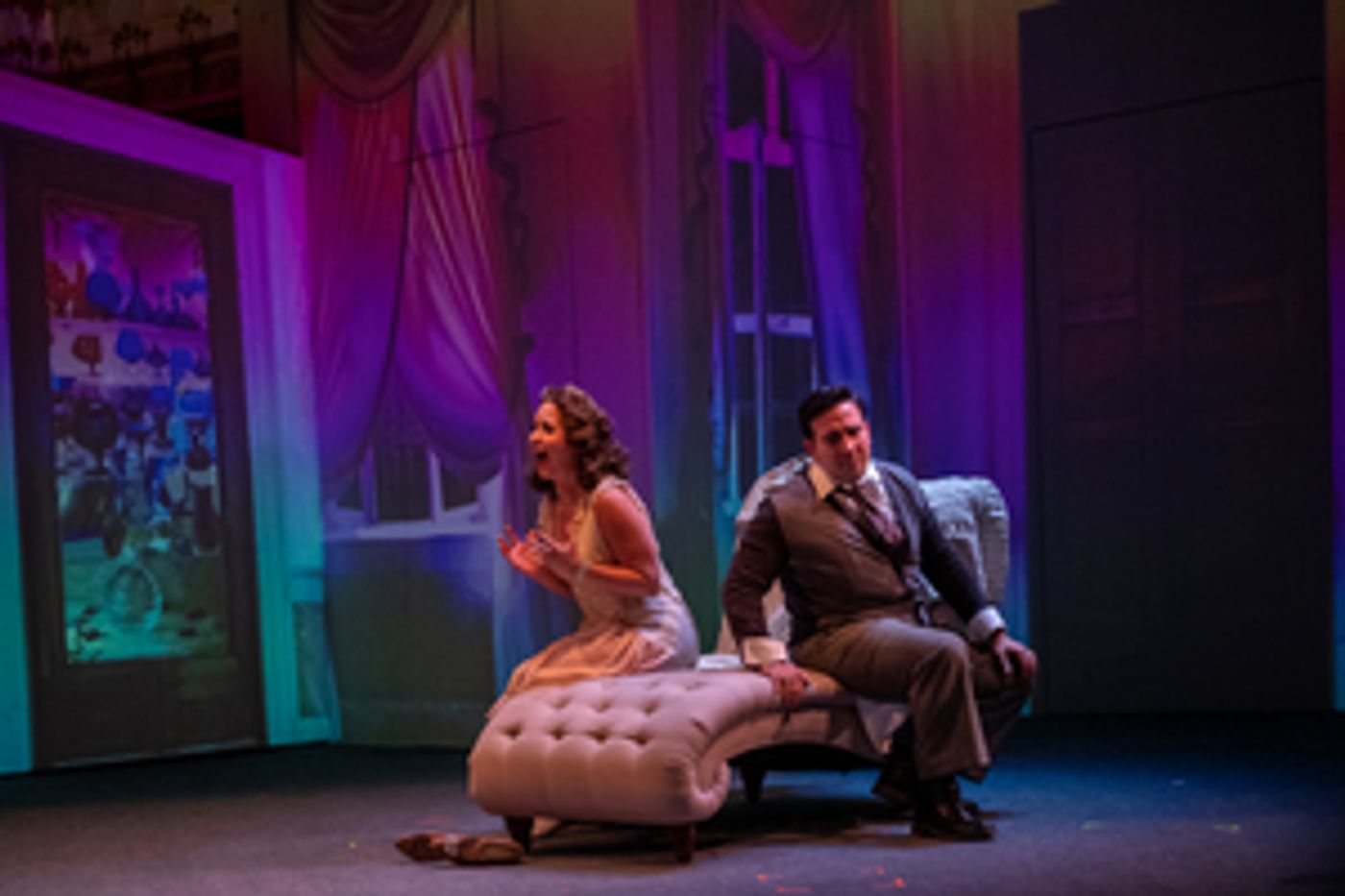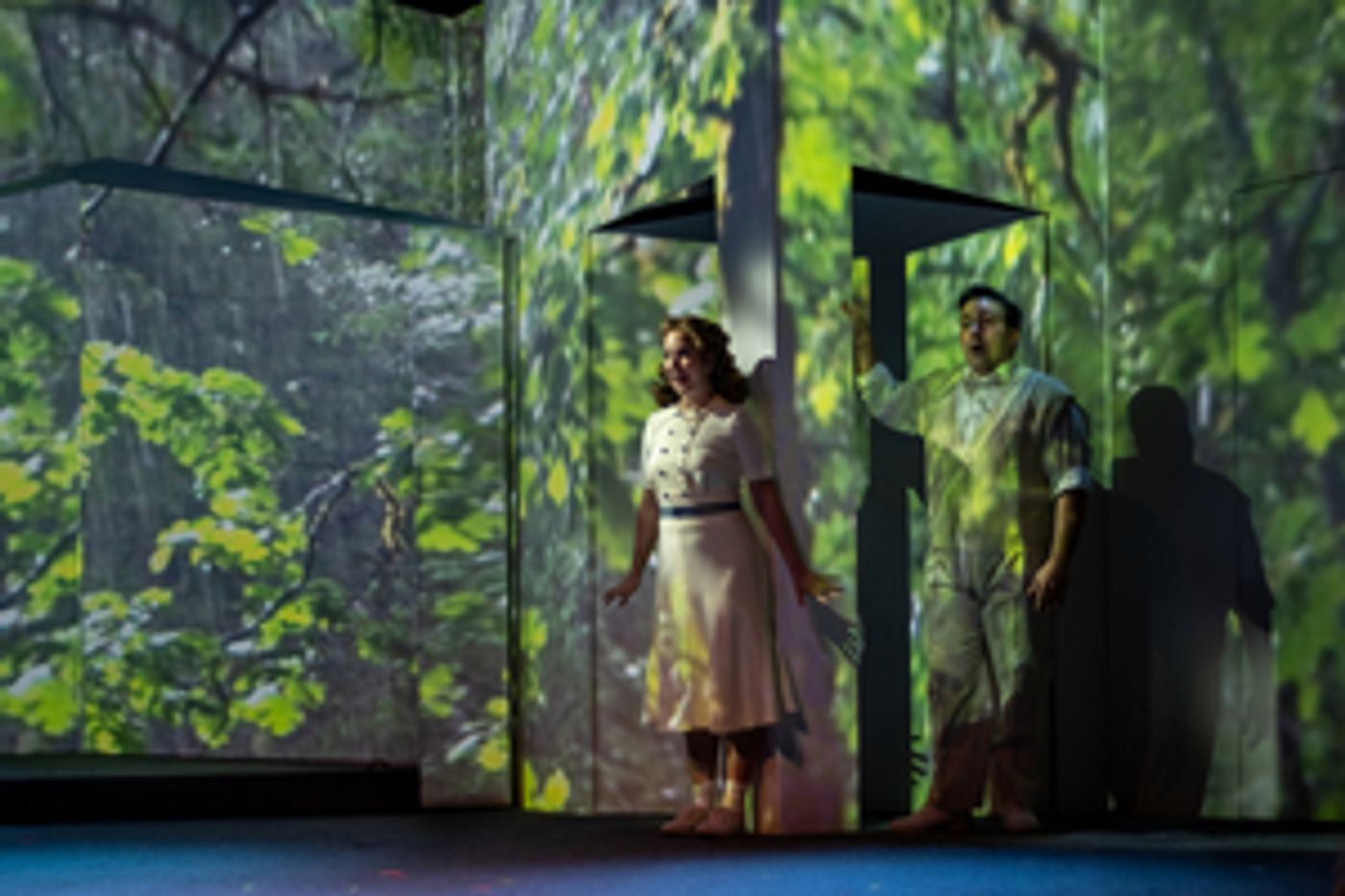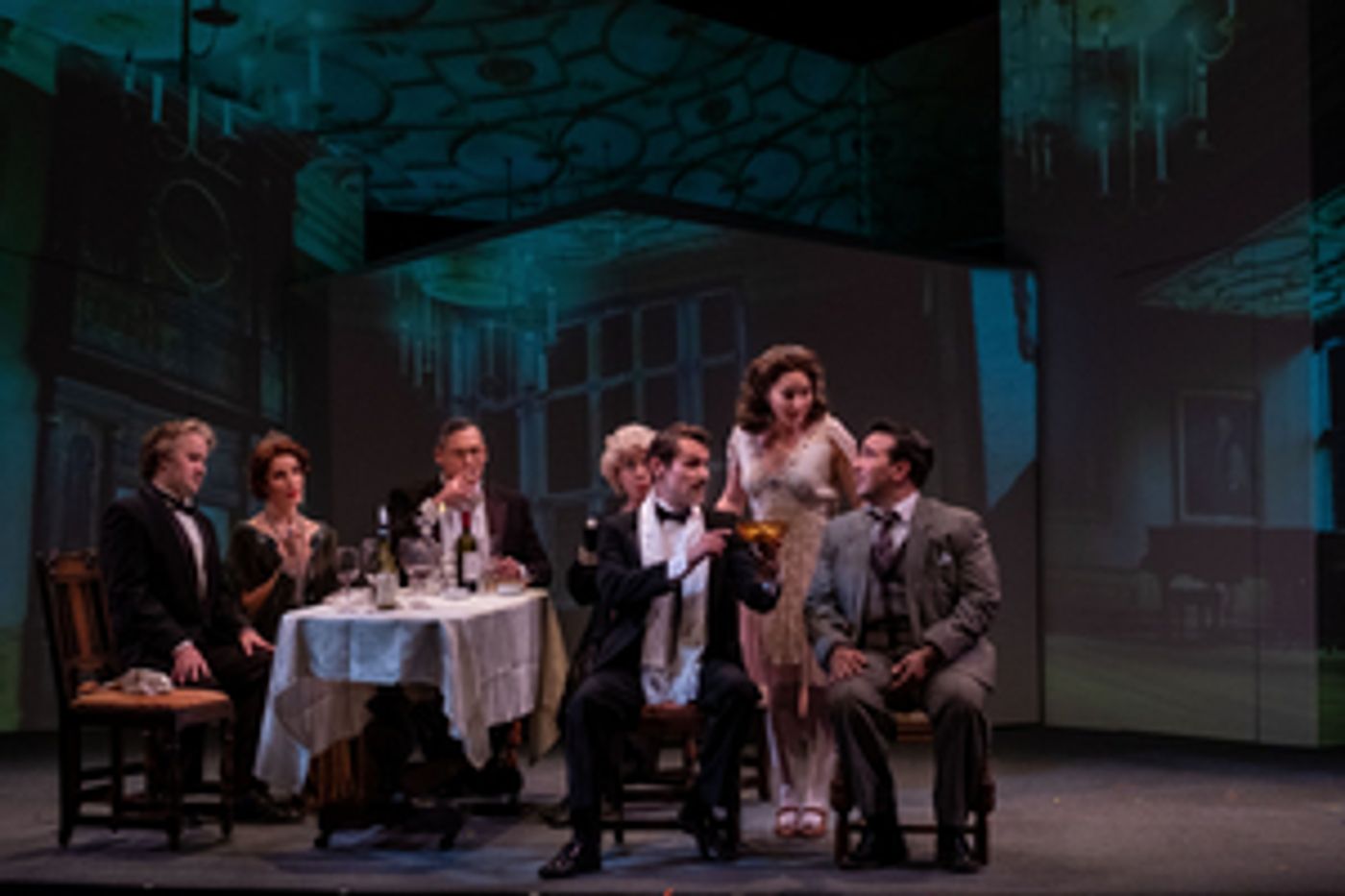Review: GARDEN OF FINZI-CONTINIS at City Opera-NYTF Is Too Much of a Good Thing
Gordon and Korie World Premiere, at Jewish Heritage Museum in NYC, Remembers the Holocaust

Photo: Alan Chin
Ricky Ian Gordon and Michael Korie, whose new opera, THE GARDEN OF THE FINZI-CONTINIS, for New York City Opera and National Yiddish Theatre-Folksbiene, weren't the only ones to be inspired by the famed 1962 novel IL GIARDINO DEI FINZI CONTINI by Italian Giorgio Bassani. The film version, by Vittorio De Sica, won the Best Foreign Film Oscar in 1970, running half the time of the opera. Still, it is the novel that excited them all.
Unfortunately, for Gordon and Korie, this meant not only culling the most important parts of Bassani's story to make room for Gordon's varied, often inspired, score, but also giving us details about the characters to make them accessible to us.
This would have been much easier on film, where the camera could come in close to see the reactions of the players in the story. With opera, the music or libretto needs to fill in all those details and that, I think, was a major problem in the first half of the piece. By the end, what made a 90-minute film was now a three-hour opera.
With so much static exposition early on, it slowed down what directors Michael Capasso (also New York City Opera's General Director) and Richard Stafford could do to keep the first half moving. It's too bad that Gordon didn't use more of his pleasurable music to introduce the characters and less for other parts of the story. Because once Act I was finished, Act II moved along at a better pace, as it came to its horrifying conclusion, with many of the characters from Ferrara (Italy) are shipped off to "detention" by the followers of Mussolini and Hitler, while others escape.

Photo: Alan Chin
The score was in good hands under James Lowe, whether working with the many sides of Gordon's music, from the dissonance early in the piece to the lush to the religious to the more jazzy elements or the rest of the opera. The orchestra's work under Lowe overture was impeccable, as it was elsewhere in the piece.
John Farrell's simple set and projection design were very well done, although the lighting did not always make it easy to appreciate the sense of place Farrell intended, because the color was often washed out.
Most of the cast for the opening was unfamiliar to me, but they did an admirable job. In particular, the well-placed and -colored tenor of Anthony Ciaramataro, as Giorgio, who was both protagonist and narrator of the piece, was very welcome. Much of the opera's impact fell on his shoulders and he did admirable work, switching from the more ardent university student to the older, wiser man who comes back to the ruined synagogue of his youth.

Photo: Alan Chin
Soprano Rachel Blaustein, as Giorgio's unrequited love, Micol Finzi-Contini, also made a strong impression with her lyric sound and smart presentation, though her reaction when Giorgio finally makes aggressive, clumsy advances to her seemed too much of a surprise. Two baritones, Bryan James Myer (Alberto Finzi-Contini) and Matt Ciuffitelli (Giampi Malnate), in smaller but key roles, gave well-informed stylishly acted performances, as Micol's gay brother and the unreturned object of his affection.
The fathers of Giorgio and Micol were in good hands with two other baritones. Franco Pomponi (particularly his darker sound in his scene in the Finzi-Contini library and his final understanding of Fascism) and Peter Kendall Clark, who has his AHA! moment, when he sends off his sons to save themselves in Switzerland when it is too late for himself and wife (the sturdy mezzo Mary Phillips).
Despite my reservations, FINZI-CONTINIS was a perfect tribute for Holocaust Remembrance Day, as it serves as a cautionary tale for us today and an interesting musical evening. For more information about future performances, through February 6, please see the City Opera website.
Reader Reviews
Videos

